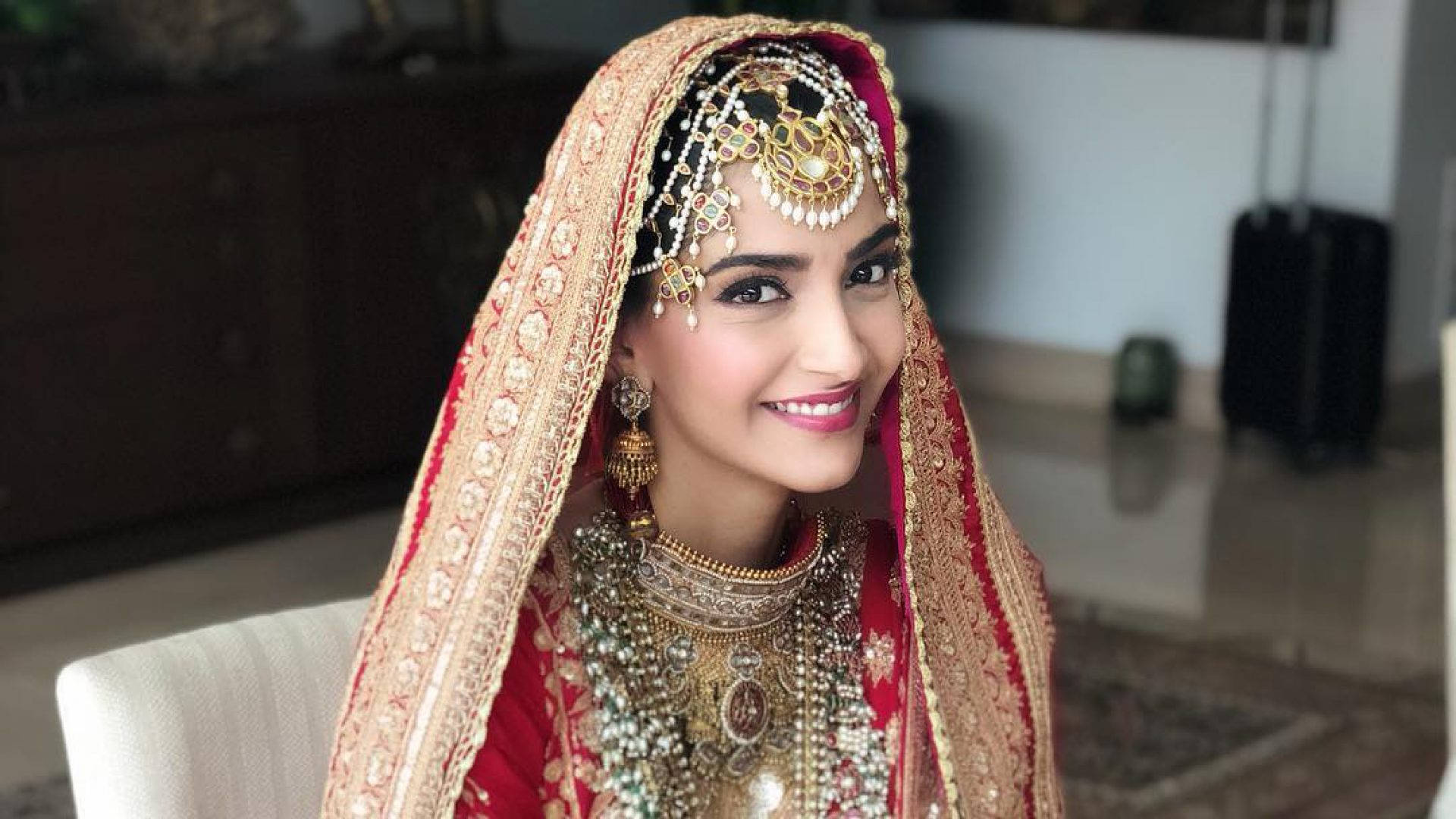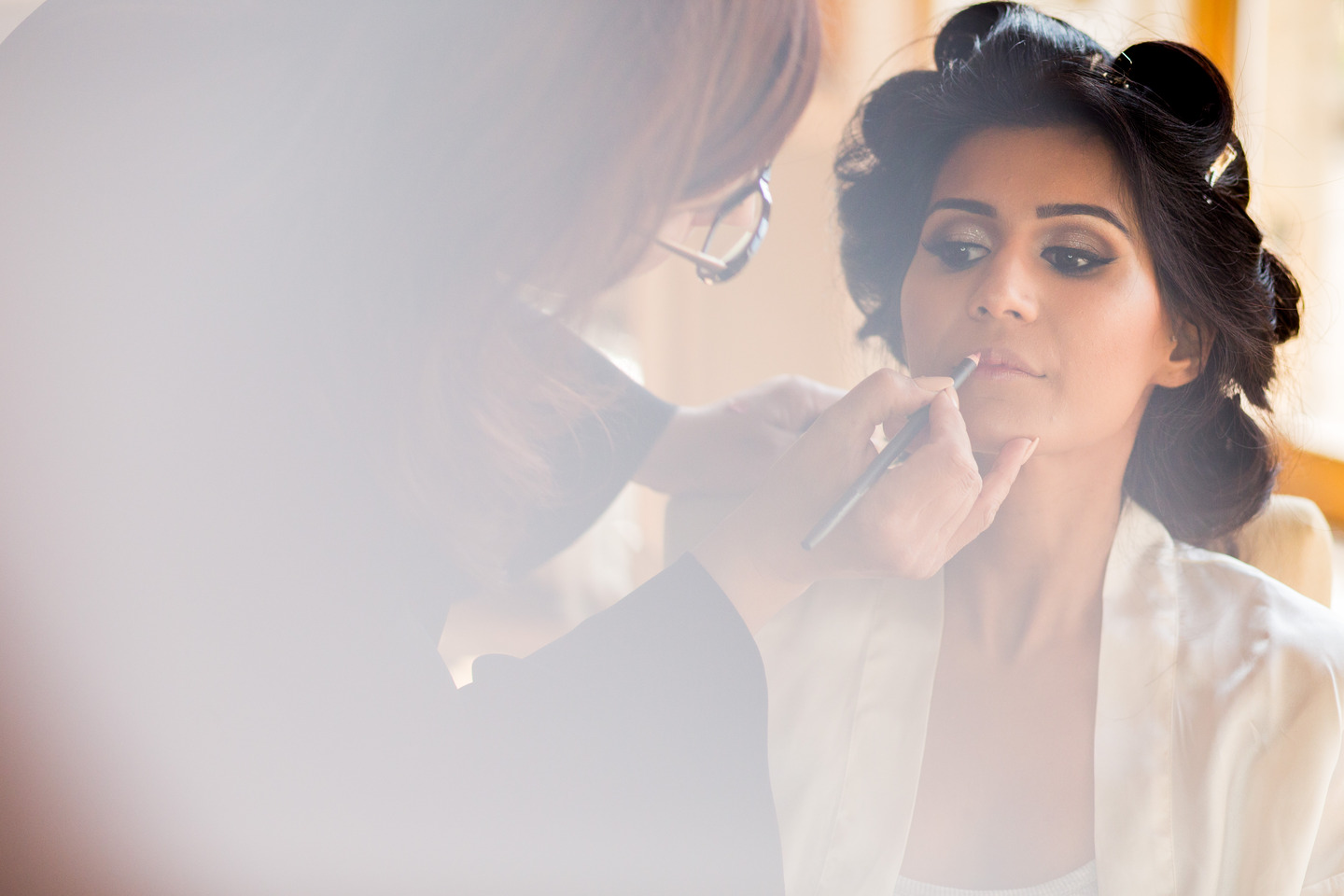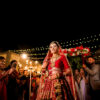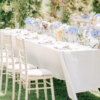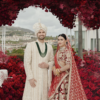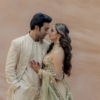In the age of filters, AI-generated content, and hyper-curated social media feeds, finding the right bridal makeup artist (MUA) is no longer as simple as scrolling through a perfectly edited Instagram profile. Today’s beauty world is saturated with digital enhancements: skin-blurring filters, AI-generated faces, and makeup renderings that have never touched real skin. For brides-to-be, this poses a serious dilemma: How do you know if your chosen MUA actually has the skills to deliver your dream look in real life, not just on screen?
“We’re in such a visual industry, and reference images have always played a big role — they help bridge the gap, especially when you don’t know someone personally,” says UK based makeup artist Kashni Suri. “But with AI and heavy editing becoming more common, that language is starting to get a little warped.” She recalls a recent trial where the bride sent over reference photos that looked heavily retouched: “I naturally worked in that direction, but later she explained she wanted something soft and minimal. It was a reminder that even the most detailed chats can be misunderstood if the visuals aren’t genuine.
Your wedding day is one of the most photographed and emotionally significant days of your life. You want to look like the best version of yourself—elevated, radiant, and, above all, real. That’s why choosing an artist who relies on their craft, not algorithms, is essential. Here’s your guide to spotting the signs of AI manipulation, filtering out the fluff, and choosing a makeup artist who brings both experience and authenticity to the table.
Scrutinise the social feed: Don’t be fooled by the filter
Most makeup artists showcase their work on Instagram, but not all content is what it seems. AI tools can create virtual faces, apply digital makeup, and perfect skin to an unrealistic degree. Some artists even use apps to alter facial proportions, erase blemishes, and simulate lighting conditions that may never exist on your wedding day.
Watch out for these red flags:
- Identical-looking faces in different posts (same eye shape, lip size, or nose)
- Unrealistic skin texture—no pores, no lines, just blur
- Eyes that look digitally enhanced or unnaturally large
- Perfectly symmetrical makeup that doesn’t follow the contours of real faces
“If every face looks identical or like it’s lit and shot the exact same way, that’s usually a sign,” says Kashni. “It’s also okay to ask for unedited photos or videos, any artist confident in their work will be happy to share them.” A reliable MUA will have a mix of polished and raw content: makeup-in-progress clips, videos from real weddings, client selfies, and images that show real skin. These are far more trustworthy than a sea of overly smooth, hyper-lit portraits that look like they came from a virtual world.
Ask for unfiltered proof
Don’t hesitate to ask your potential artist for unedited before-and-after shots or videos of their work in natural light. A real MUA takes pride in the transformations they create with their hands, not just through editing apps. Seeing makeup on real faces under regular lighting is the most authentic way to assess their skill.
Also, look through tagged photos and client testimonials. Are brides happy? Do they look comfortable and glowing in real life, not just in studio setups? You can even reach out to former clients with a polite DM to ask about their experience, most will be more than happy to share. And when in doubt, real reviews are your best friend. There’s nothing more reassuring than hearing directly from brides and makeup artists who’ve been through it all. Head to khushwedding.com to browse genuine, tried-and-tested reviews that give you the inside scoop. Because when it comes to your big day, word-of-mouth and honest feedback matter way more than filters.
Insist on a trial, and treat it like an interview
A trial session isn’t just about picking the right shade of lipstick. It’s your opportunity to see your artist in action and evaluate how they translate your vision onto your skin. Notice how your MUA handles your skin type, the hygiene of their tools, their layering techniques, and how your makeup wears throughout the day. Most importantly, do they listen to what you want? “Makeup isn’t about creating a version of you that only exists online — it’s about making sure you feel like the best version of yourself in real life,” Kashni reminds us.
During your trial, pay attention to:
- Their approach to your skin type: Do they prep it well, understand its needs?
- Product hygiene and technique: Clean brushes, precision blending, thoughtful layering
- Their ability to adapt to your preferences while offering professional advice
- How your makeup wears over the next few hours
If your trial leaves you with more questions than confidence, it’s okay to walk away. Remember, a great MUA won’t rely on AI to impress you—they’ll let their artistry do the talking.
Evaluate their understanding of real-world conditions
A bridal makeup artist needs to be more than just creative—they must be strategic. Your wedding makeup needs to withstand heat, humidity, tears, long rituals, and hundreds of photographs. The best MUAs will ask you detailed questions: Is your wedding indoor or outdoor? What time of day is it? What’s the lighting situation? What’s your skin type, and how does it behave under stress?
Their product choices should reflect this context, long-wear formulas, waterproof mascaras, humidity-proof primers. AI might simulate the finish, but only real-world experience teaches an artist how to make a look last through tears, hugs, and surprise rain showers.
Bride Amrita Kundi shares her experience: “The airbrush makeup felt so light on my skin and it didn’t budge at all; even after the tears from the doli and the sneaky nap I took before dinner!” she laughs. “(UK-based makeup artist) Ganga made sure I had a small tub of lipstick to freshen up but other than this, nothing needed to be done. Booking her was one of the best decisions I made.”
Her glowing review is a reminder: performance under pressure is what separates good artists from great ones.
Their product choices should reflect these considerations, choosing waterproof, long-wear formulas, proper primers, and suitable textures that work for you, not just the camera. AI can mimic a finished look, but it can’t predict how real products behave on real skin.
Ask informed & technical questions
A seasoned artist will appreciate a curious bride who knows what she wants. Test their knowledge with specific questions:
- “How do you prevent flashback in flash photography?”
- “What’s your go-to technique for ensuring a flawless base on textured skin?”
- “What products do you use for extremely humid weather?”
- “Do you offer different looks for day vs. night ceremonies?”
Their answers will show whether they’re speaking from experience or simply following trends online. A strong MUA won’t hesitate to break down their process.
Beware of trend chasers
AI makeup trends like glass skin, ultra-sharp contours, or feather-light brows may look incredible online, but they don’t suit everyone in real life. A good bridal MUA will personalise your look based on your features, traditions, and comfort level, not try to turn you into an Instagram clone. Your wedding day look should reflect you. Whether that means soft glam, traditional Indian bridal, or minimalist chic, it should enhance, not hide your natural beauty.
Judge the vibe, not the visuals
On your big day, your makeup artist becomes part of your inner circle. Their energy, demeanour, and professionalism matter. Do they make you feel seen and heard? Are they calm and reassuring, even during last-minute jitters? The best artists are the ones who put their clients first, are present in the moment, and understand that your comfort matters as much as your contour.
“From the moment we met on trial, I just knew you were the one I wanted as my MUA. You made the whole experience calm and made me feel fabulous” says Preema Ravani, a UK based bride who had her bridal makeup done by celebrity makeup artist Ambreen.
Artificial intelligence may be a powerful tool in the beauty industry, but it can never replace human intuition, hands-on expertise, or the connection between an artist and their muse. As a bride, you deserve more than a digitally altered dream; you deserve a makeup artist who understands your story, honours your face, and brings your vision to life with their own two hands. So, when choosing a bridal MUA, don’t just scroll; investigate. Don’t just admire, ask, and don’t be swayed by the illusion; seek out the artist who makes you beautiful, confident, and truly yourself. Because on your wedding day, real beauty deserves to take centre stage.



